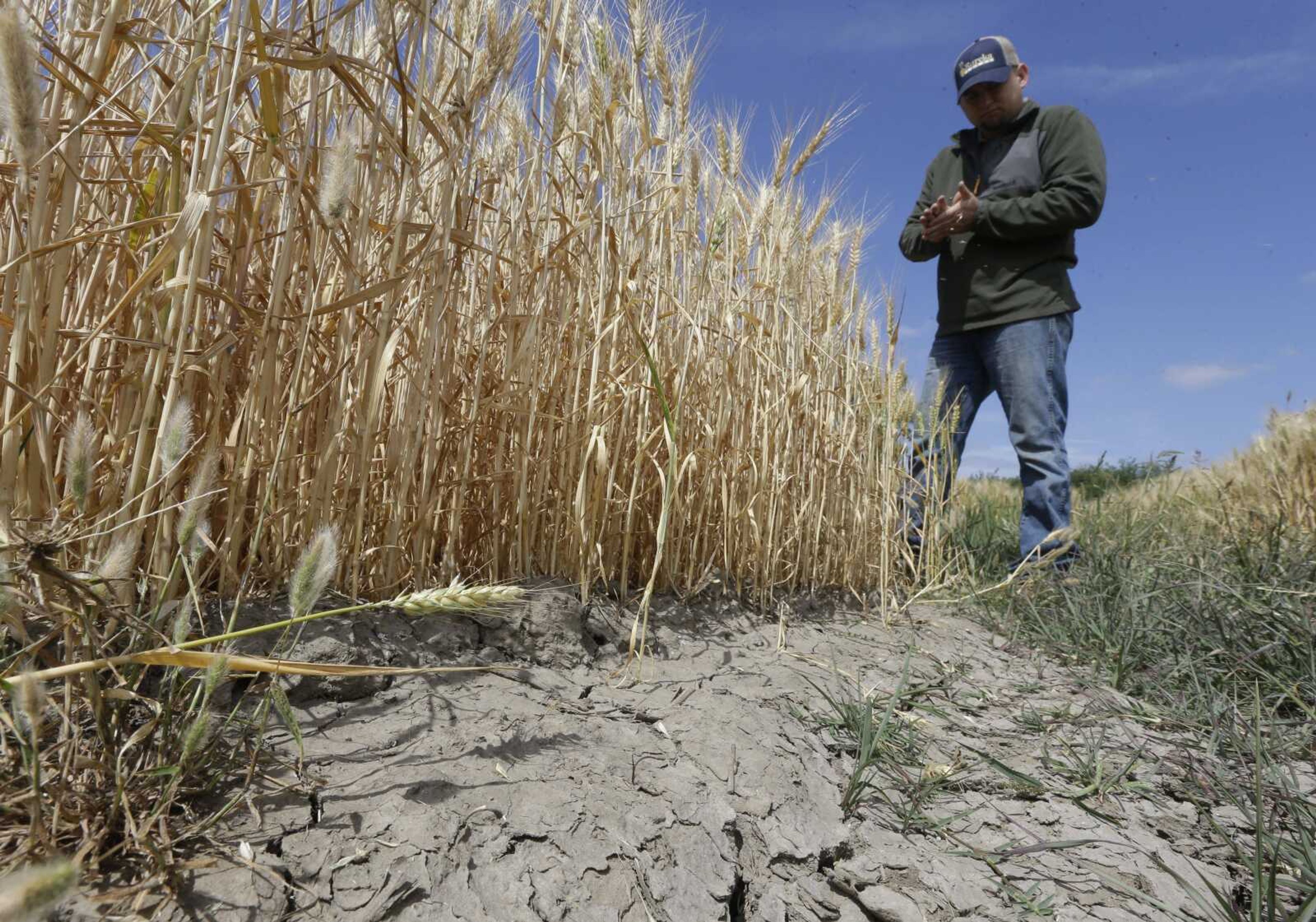California farmers offer to cut water usage
SACRAMENTO, Calif. -- A group of California farmers, in a surprising turnaround, is volunteering to give up a fourth of its available water this year, sharing a resource all but guaranteed to them for more than a century. A senior state official said Wednesday he would decide whether to accept the offer by Friday. The concession by farmers in the Sacramento and San Joaquin river delta could be one of the most important forced by California's record four-year drought...
SACRAMENTO, Calif. -- A group of California farmers, in a surprising turnaround, is volunteering to give up a fourth of its available water this year, sharing a resource all but guaranteed to them for more than a century.
A senior state official said Wednesday he would decide whether to accept the offer by Friday. The concession by farmers in the Sacramento and San Joaquin river delta could be one of the most important forced by California's record four-year drought.
In exchange for taking 25 percent less river water for irrigation or leaving a quarter of their fields unplanted, the farmers want guarantees the state won't restrict the remaining 75 percent of the water rights they've had for more than a century, even if the drought deepens and other users go dry.
The offer was made as these and other "senior water rights holders" face an imminent threat of being included in the mandatory cutbacks that apply to most other California water users.
Water Resources Control Board director Tom Howard said Wednesday whatever he decides will apply to the entire basin of the Sacramento River, which supplies most of the surface water in the food-producing Central Valley and provides drinking water to homeowners across California.
If the drought persists, even those farmers with the strongest water rights would have to stop pumping at some point, Howard noted Wednesday. His decision hinges on whether a voluntary 25 percent cut would be enough to replenish waterways that are vanishing, after a winter of below-average rainfall and record-low snows in the Sierra Nevada.
"Should we make an offer like that early, to give people clarity and regulatory certainty, or is there not enough water to really make a difference?" Howard asked. "We're just trying to make sure if the offer makes sense."
Delta water managers say it could become a model for farmers throughout California who face curtailments. It also could have an eventual impact on food prices, because agriculture uses 80 percent of the water drawn from the land in the state.
State officials had threatened to take action as early as this week against senior water rights, some dating to the Gold Rush era, long before industrialization in the 20th century led to climate change.
The rights give nearly 4,000 landowners the strongest claims in California to this precious and increasingly limited resource.
Connect with the Southeast Missourian Newsroom:
For corrections to this story or other insights for the editor, click here. To submit a letter to the editor, click here. To learn about the Southeast Missourian’s AI Policy, click here.









